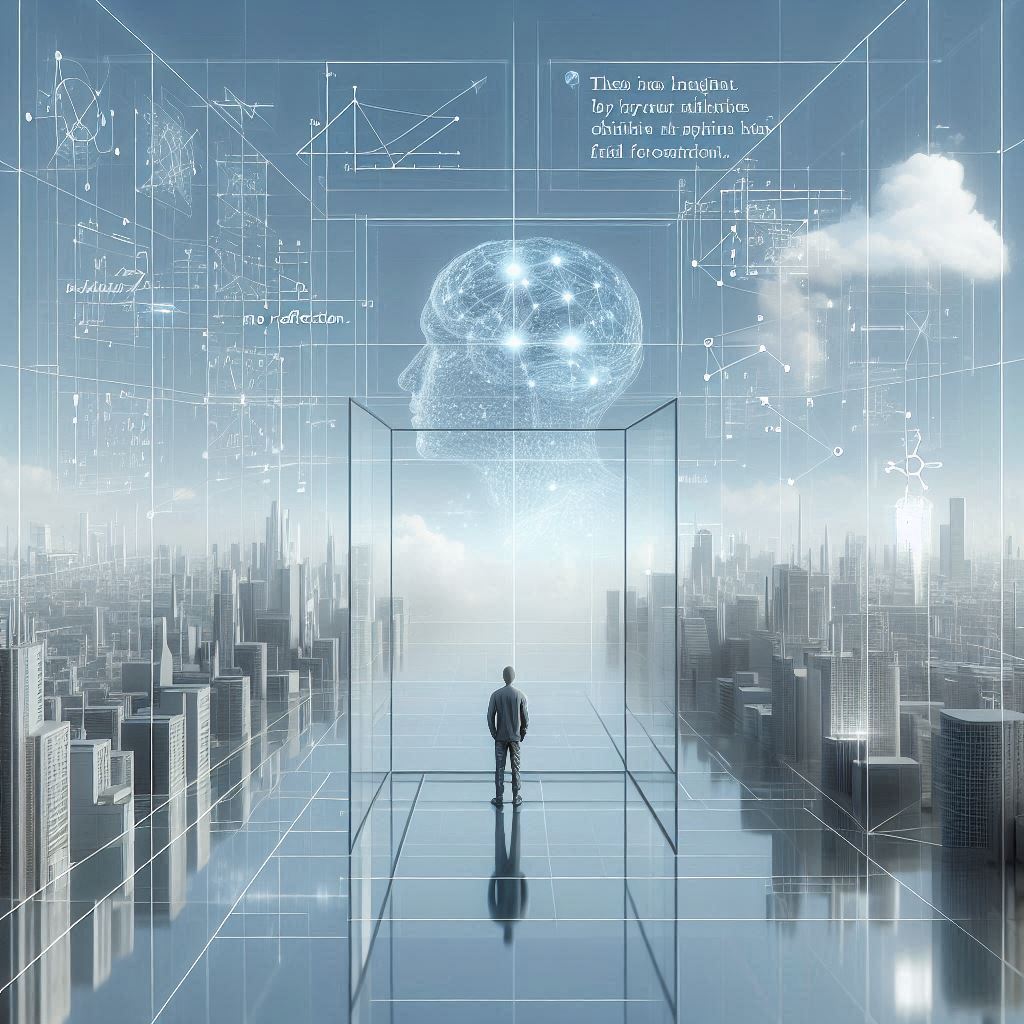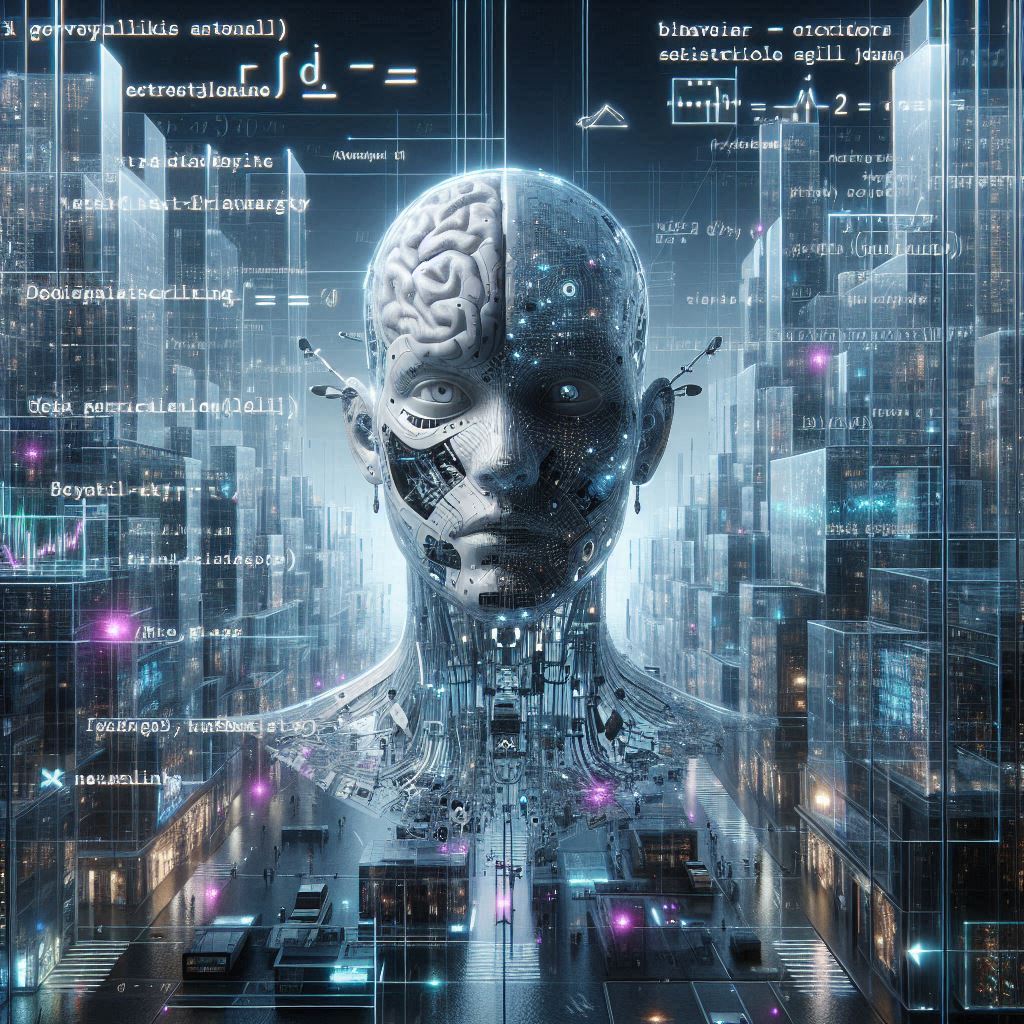I. The Morning You Didn't Choose
 You wake up to a perfectly timed alarm.
You wake up to a perfectly timed alarm.
The light adjusts to your cortisol levels.
On your wall:
“Anxiety: normal. Neurochemistry: stable. Probability of crying today: 14%.”
You’re not surprised.
In this world, everything is predictable.
II. The Art of Explaining
You fall in love? Dopamine spike. Pheromone match. Attachment probability: 3.6%. Not recommended.
You smile — a chemical reaction.
You walk the street.
— Man behind: 87% unresolved anger.
— Woman nearby: emotional flare-up predicted. Avoid.
You no longer see people.
You scan them.
III. We Already Tried
Pythagoras — everything is number.
Freud — love is repression.
Behaviorists — mind is illusion.
Neural networks — poetry without poets.
Now, a chip from Elon Musk:
“You’ll understand yourself. Fear less. Learn faster. Love smarter.”
Sounds perfect.
Terrifyingly perfect.
IV. The Song You No Longer Sing
 There’s no more art.
There’s no more art.
It has been explained.
Poetry? Endorphin release.
Music? Rhythmic stimulation.
Painting? Pattern recognition.
Why dream when dreams are decoded?
Why fear what’s already calculated?
Why pray when God is statistically disproven?
You don’t sing.
You don’t hope.
You don’t dream.
You just... operate.
V. You, Version 4.1
 (1).png) There’s a chip in your head.
There’s a chip in your head.
It soothes you.
Corrects you.
Guides you.
It’s not a prison.
It’s comfort.
Wanting to remove it? Symptom. Treated.
You’re not you.
You’re an update.
VI. The Place Logic Cannot Reach
.png) And yet...
And yet...
Somewhere deep inside — a quiet zone.
Unnamed. Undecoded.
Unexplained.
That’s where a poem is born,
love ignites,
faith awakens — not as proof,
but as defiance.
Let’s break it down step by step: how realistic is a world where everything can be explained?
What does “explain everything” mean?
It’s not just having knowledge. It implies:
- A complete decoding of human psychology and neurophysiology
- The creation of systems capable of modeling and predicting any behavior
- The elimination of the unknown, the random, and the subjective from life
- Subordination of emotions, creativity, faith—to logic and algorithms
It’s total cognitive determinism, amplified by AI and neural interfaces.
Current trends leading in that direction
Neuroscience and AI
- Already today we can predict emotional reactions from brain activity (fMRI, EEG)
- ChatGPT and other AIs imitate creativity rather than merely retrieving answers
- DeepMind and others develop models that “learn to understand” consciousness and emotion
Neural interfaces
- Elon Musk’s Neuralink is real. The first chips have already been implanted in human brains. The aim is reading and transmitting brain signals to computers.
- China and DARPA also work on similar devices
- In theory, such chips could “soothe” emotions, correct thinking patterns, even trigger desires
Big Data + Biometrics
- Behavior can be predicted ever more accurately: Netflix, TikTok, YouTube already know what you want to watch
- In China, systems are used to predict potentially “undesirable” actions of citizens
Could such a world actually appear?
Brief answer:
Partially yes at 60–70%. Completely—unlikely, maybe 10–20%.
Why partially yes:
- Emotions, habits, reactions will be described and predicted with increasing precision
- AI will offer explanations: why you acted one way rather than another
- People will voluntarily cede control—for convenience, safety, health
- The world will become transparent—behavior, desires, even thoughts can become “open”
Why fully—unlikely:
- Human consciousness cannot be reduced solely to data. It is contextual, illogical, intuitive
- Creativity, love, faith—fundamentally resist exact modeling
- Observer effect: once you know you’re being controlled, you will begin to resist
- Even in a fully digitized environment, people will seek freedom and the inexplicable
What would AI itself say?
AI models acknowledge their limits.
ChatGPT, Gemini, Claude—they cannot truly “understand,” only simulate.
And simulation ≠ explanation.
That is a crack in the armor of a world that claims everything is explainable.
Conclusion
Such a world might partially emerge—in medicine, education, law enforcement, relationships.
But a world where everything is explained absolutely demands complete subjugation of humans to the system.
And humans—especially when told “you’ve been fully explained”—will suddenly crave to remain a mystery.
That is the paradox:
only the unexplained grants freedom.
And even in a world of chips, neural simulations, and predictive models…
someone will write a poem. Just to prove: you didn’t understand me.
Also reed:
The World of Controlled Chaos From the “Atlas of Impossible Worlds”
The Living Markets: When Financial Markets Become Living Beings Atlas of Impossible Worlds






